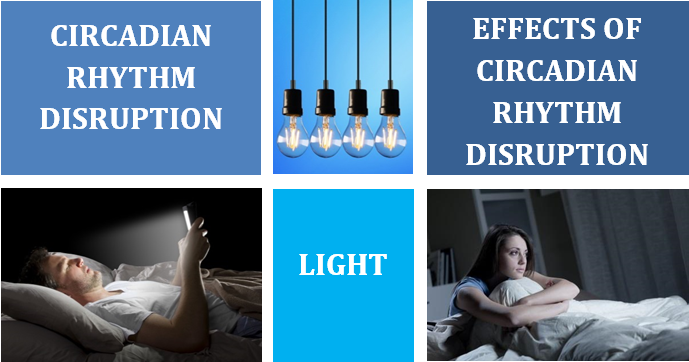The Program for Bio-Behavioral Light Intervention Research
The Program is currently investigating the effect of light intervention on circadian rhythm entrainment (through measurement of melatonin and cortisol), cancer-related side effects (e.g. fatigue, depression, and sleep) and their biological mechanisms.
We seek to develop and test easy to administer, cost-effective interventions to reduce patient- and caregiver-distress.

Circadian Rhythm Disruption
Fatigue, depression, and sleep disturbance can be debilitating problems for cancer patients. These conditions are linked to circadian rhythm disruption: disruption in 24-hour cycles of hormone secretion, body temperature, and sleep-wake activity cycles that respond to environmental cues, such as light and darkness. Circadian rhythm disruption can be caused by many factors, including shift work, pregnancy, time zone changes, but also by chronic diseases and their treatments. This disruption is well-documented among cancer patients as evidenced by common daily sleep-activity disruption during disease progression and treatment, flat diurnal cortisol rhythms, and lower evening melatonin levels.
Our research: Light Interventions
Our research investigates the effects of light exposure on the synchronization, also referred to as entrainment, of circadian rhythms in cancer patients. Morning light is one of the strongest synchronizers of the circadian rhythm system. We use systematic light exposure (sLE) either in form of a small portable light device or light glasses, to project light directly to the eyes. We are also investigating programmed environmental illumination (PEI) to deliver light by illuminating the entire room. sLE and PEI are both low-cost, low-burden, and easy to administer. Our initial randomized trial of sLE using circadian-effective light was associated with clinically significant reductions in fatigue, depression and sleep problems.
Our research shows significant promise for the use of sLE and PEI with cancer patients. Study participants include: Multiple Myeloma patients undergoing stem cell transplants, survivors of stem cell transplants and breast cancer patients undergoing chemotherapy. We are excited about our current results and plan to expand our efforts to other disease processes, including Metabolic Syndrome and obese frailty with cancer, and depression following cardiovascular surgery.
